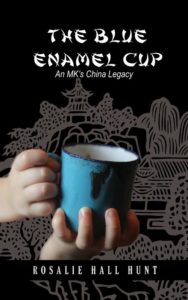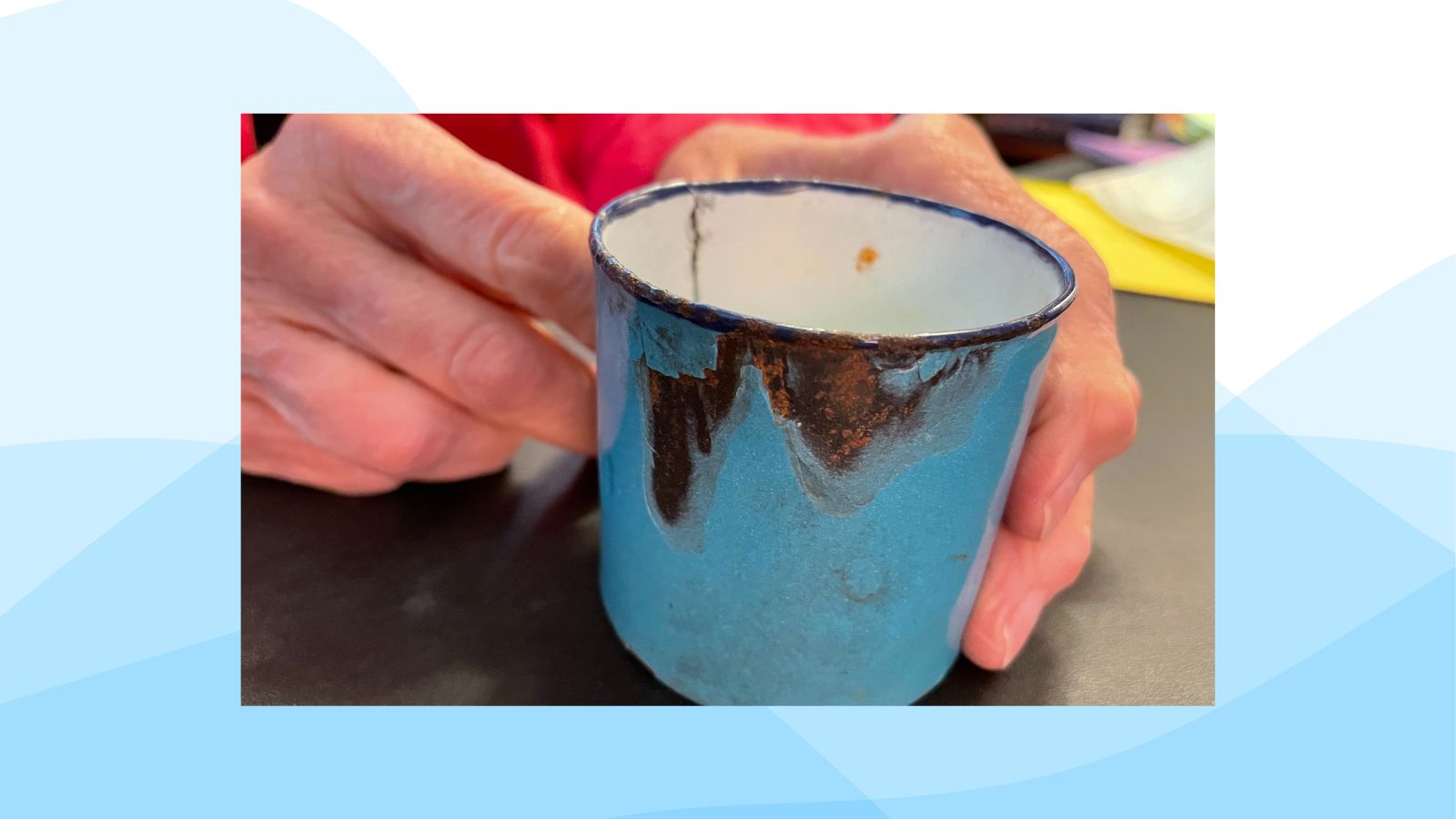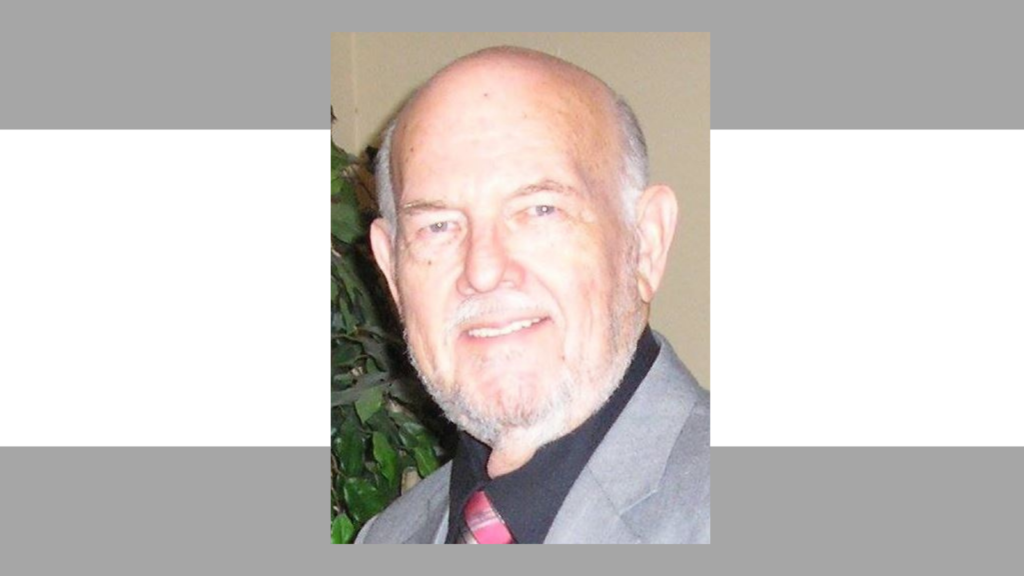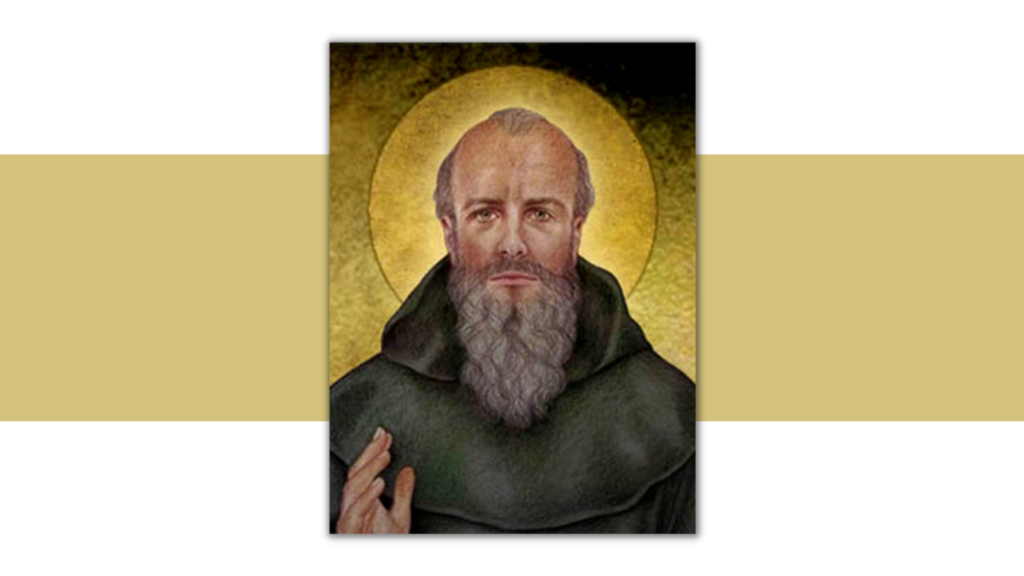One small blue enamel cup might seem insignificant when you’re called to serve around the globe, but if it was possible for Rosalie Hall Hunt’s blue cup to talk, it would overflow with stories about people and places.
Today that cup sits on her computer desk, a daily reminder of her missionary experiences as a child and adult. She received the cup on her first birthday in Yangzhou, China. In 1962 it was packed in her suitcase again.
In her new book, “The Blue Enamel Cup,” part two of her memoir, Hunt writes, “This would be the blue cup’s third time across the Pacific Ocean, symbolizing for me a tangible piece of my first home that was returning to its roots.” 
New journey
The book begins with the Hunts — Bob, Rosalie, 3-year-old Alice and 6-month-old Jody — ready for takeoff on a British Airways 707. Rosalie and Bob were excited and filled with anticipation — this flight would take them to their first country of missionary service, Taiwan.
When they landed at the Taipei International Airport, the family was greeted by new and familiar faces, people who knew and had worked with Harold and Alice Hall, Rosalie’s parents. They heard people saying, Hwan Ying, Hwan Ying, “welcome” in Chinese.
The Hunts would work with the Taiwan Baptist Mission, attend Grace Baptist Church and teach at Tai Da, Taiwan’s most prestigious university. Of course, language school was immediately a top priority — Mandarin, not Taiwanese — a daily process that would take years to master.
Taiwan was where their international missions work began. Eventually, they would go to Hong Kong, mainland China, the Philippines, Australia, Singapore, Malaysia, India and back to the Philippines before finding a new home in Alabama.
In the United States, the Hunts served 8 years at First Baptist Church Boaz, where Bob was youth minister and associate pastor. They traveled throughout the U.S., fulfilling many speaking engagements, attending missions conferences and visiting family. The blue enamel cup survived packing and unpacking, a tornado, earthquakes, typhoons and even robberies.
China revisited
But thoughts of China were always close, and “past experience had taught us to look for the unexpected and know that new adventures were coming,” Hunt said. “I wondered if I would ever be able to go [back] to China, that land printed so deeply on my heart.”
It did become a reality and one of her most cherished memories. She returned in 1983 with a friend, Hong Kong missionary Elena Petty, a former International Mission Board Journeyman in Taiwan.
Their trip began in Beijing, where they visited several historic landmarks. The Temple of Heaven had been Hunt’s mother’s favorite spot in 1932, so she snapped a picture and weeks later was able to share it with her mother.
The women applied for tickets to travel to Zhenjiang, 600 miles riding in a packed train.
Arriving again after 35 years, Hunt stood at Yin Shan Men (Silver Mountain Gate). She describes the moment: “We turned the corner — and there on the side of the hill were the two missions houses, standing much as they had for a century. I stood there, a grown woman in the midst of a busy throng of passersby, tears streaming down my cheeks. I was finally home after thirty-five years. For some reason my little blue enamel Chinese cup that had been with me since 1939 came to mind, and I thought, ‘Surely, in this moment, my cup runneth over.’”
‘Power of His call’
As she climbed the steps of her former home, Hunt thought about “the power of His call’” on her life.
Hunt and Petty also found the cornerstone of the Yin Shan Men church, organized in 1885. The building is now a factory. Rosalie choked up as she recalled treasured memories of worship services.
She had pictures from the 1930s, which she took to the city’s Protestant church. They were met by a cluster of elderly women and Rosalie showed them the photos asking if they recognized anyone. They did. Then Hunt asked if they had a pastor and they called for him.
Standing before her was Wu Ji Shao. She describes him as “the brilliant young ministerial student my father had mentored and trained half a century earlier. He had not seen a missionary in thirty-five years.”
Tears flowed from Rosalie’s and Wu Ji Shao’s eyes.
“We spent a glorious hour visiting and talking.”
When the time came to board the train back to Shanghai, Hunt vowed, “I’ll be back” — and it would happen.
The mission continues
“I had never questioned my call to missions service,” Hunt writes. “In point of fact, neither had Bob. I must admit that my concept of ‘God’s call’ was something I could not easily define. (I still can’t). In my thinking, God called, and that was it. Many years and a number of experiences needed to occur for me to clearly understand that God’s call is not in the past tense, but it is an active, living precept by which His children live. I don’t even know the best word for it: Precept? Concept? Injunction? Tenet? Maybe it is some of all of those. Time has convinced me that we are ‘works in progress.’ I hope and pray never to reach the place where I feel no change is needed. My heart knows better than that.”
Reflecting on the completion of her two-book memoir project, Hunt said gratitude is the word that comes to mind.
“I am thankful to have told the story,” she said. “But I am also very aware of things left undone during those years, and I am amazed at how God could bring good things out of feeble, inept and imperfect people like we were and are!
“But then, I have renewed in my thoughts that Bob was so right when he says, ‘I just wish we could do it all again!’”
EDITOR’S NOTE — This article is the third in a series reflecting on the legacy of missionary, author and beloved speaker Rosalie Hall Hunt. Click here to read part 1, “‘Remember Who called you’: Rosalie Hall Hunt and a legacy of missions.” Click here to read part 2, “Rosalie Hall Hunt: The China Series — ‘6 Yellow Balloons: An MK’s China Story.’” Click here to view a video and read more stories. Learn more about Rosalie and purchase her books at rosaliehallhunt.com.






Share with others: